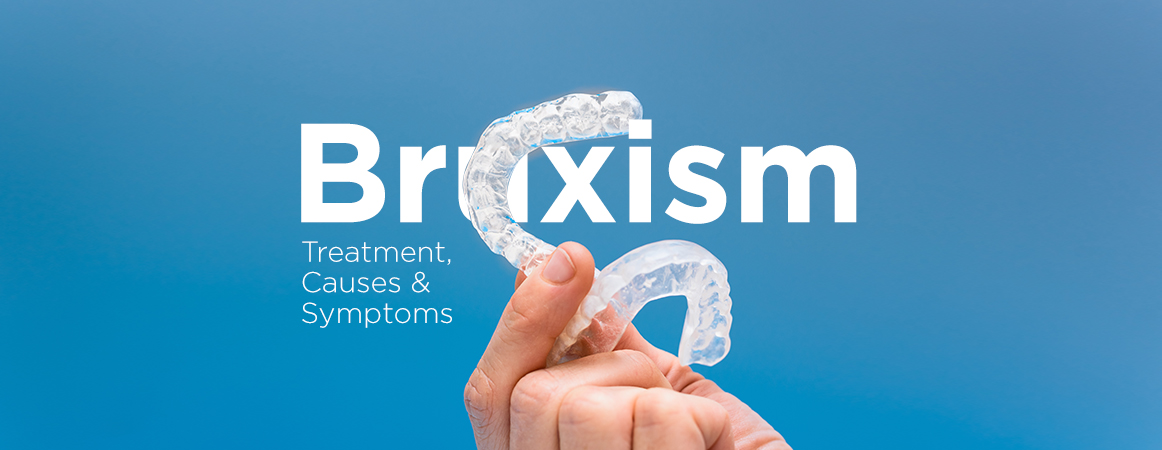Bruxism: Treatment, Causes and Symptoms
Bruxism, a disorder that affects millions of individuals worldwide, is sometimes referred to as teeth grinding or jaw clenching. It can occur during the day or at night, during sleep, leading to a range of symptoms and potential dental issues. While the exact cause of bruxism remains elusive, understanding bruxism symptoms, bruxism causes, and available bruxism treatment is essential for managing this condition effectively.
Bruxism Symptoms: Recognizing the Signs
Identifying bruxism symptoms can be challenging as it often occurs during sleep. However, there are several common signs and bruxism symptoms to look out for, including:
- Grinding or Clenching Noises: Grinding sounds during sleep, noticed by a partner or family member, can indicate bruxism.
- Morning Jaw Pain: Waking up with a sore jaw or face muscles is a common symptom of nocturnal bruxism.
- Tooth Sensitivity: Enamel erosion associated with bruxism may lead to increased sensitivity of the teeth to hot, cold, or sweet foods and beverages.
- Headaches: Chronic headaches, particularly in the temples or behind the eyes, are often associated with teeth grinding.
- Damaged Teeth: Fractured, flattened, or chipped teeth without any other explanation can suggest bruxism.
Bruxism Causes: Unraveling the Triggers
The precise causes of bruxism are not fully understood, but several factors may contribute to its development:
- Stress and Anxiety: Psychological factors such as stress, anxiety, or tension are commonly linked to bruxism. Grinding teeth may serve as a subconscious coping mechanism during periods of emotional distress.
- Malocclusion: Misaligned teeth or an improper bite (malocclusion) can lead to bruxism, as the jaw attempts to find a comfortable resting position.
- Medications: Certain medications, particularly antidepressants and antipsychotics, can trigger bruxism as a side effect.
- Lifestyle Factors: Excessive consumption of caffeine, alcohol, or recreational drugs may increase the likelihood of teeth grinding.
- Sleep Disorders: Bruxism is often associated with other sleep disorders such as sleep apnea or snoring.
Bruxism Treatment: Managing the Condition
While there is no definitive cure for bruxism, several treatment options can help alleviate bruxism symptoms and prevent dental complications:
- Mouthguards or Splints: Custom-fitted mouthguards or splints can protect the teeth from grinding and clenching during sleep. These dental appliances create a barrier between the upper and lower teeth, reducing the impact of bruxism-related forces.
- Stress Management Techniques: Stress reduction techniques such as meditation, deep breathing exercises, or counseling can help mitigate bruxism symptoms triggered by psychological factors.
- Behavioral Therapy: Cognitive-behavioral therapy (CBT) can be effective in addressing underlying emotional issues contributing to bruxism and teaching alternative coping strategies.
- Medication: In some cases, muscle relaxants or antidepressants may be prescribed to alleviate muscle tension and reduce bruxism symptoms.
- Dental Procedures: Dental treatments such as orthodontic adjustments or dental restorations (e.g., crowns and veneers) may be recommended to correct bite abnormalities and prevent further tooth damage.
Preventing Bruxism: Adopting Healthy Habits
In addition to seeking bruxism treatment, adopting certain lifestyle changes can help prevent or reduce the severity of bruxism:
- Stress Reduction: Engage in stress-relieving activities such as exercise, hobbies, or spending time with loved ones to minimize emotional tension.
- Limit Stimulants: Reduce consumption of caffeine, alcohol, and tobacco, as these substances can exacerbate bruxism symptoms.
- Maintain Good Sleep Hygiene: Establish a regular sleep schedule, create a relaxing bedtime routine, and ensure a comfortable sleep environment to promote restful sleep and reduce nocturnal bruxism episodes.
- Practice Jaw Relaxation Exercises: Incorporate jaw relaxation exercises into your daily routine to relieve muscle tension and minimize jaw clenching.
- Regular Dental Checkups: Schedule regular dental checkups to monitor for signs of bruxism-related tooth damage and discuss appropriate treatment options with your dentist.
Conclusion
Bruxism is a common condition characterized by teeth grinding or jaw clenching, often during sleep. While the exact cause remains uncertain, stress, malocclusion, medications, and lifestyle factors are believed to contribute to its development. Treatment options for bruxism include mouthguards, stress management techniques, behavioral therapy, medication, and dental procedures. By adopting healthy habits and seeking appropriate treatment, individuals can effectively manage bruxism and prevent dental complications. Regular dental checkups play a crucial role in monitoring bruxism symptoms and implementing personalized treatment plans to improve overall oral health and quality of life.
Schedule an appointment with a qualified dentist at MMI Hospital and receive unparalleled care for your bruxism treatment.


